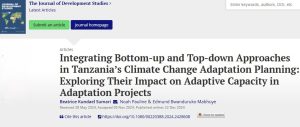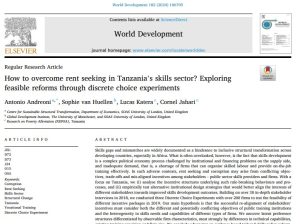
Urban solid waste management and the decent work: Insights from Tanzania’s key cities
This study investigates the labour practices of employed and freelance solid waste workers in Tanzania’s major cities namely Dar es Salaam, Mwanza, and Dodoma through the lens of the International Labour Organization’s (ILO) decent work framework. Focusing on key areas such as job and income security, fair wages, occupational health


